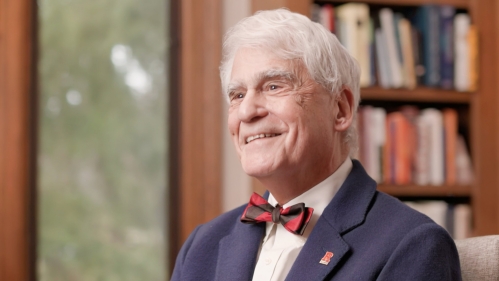Dr. Constantine Mavroudis’s journey to becoming an internationally renowned leader in the field of heart surgery for children included a transformative four years at Rutgers University. He will be inducted into the Rutgers Hall of Distinguished Alumni on April 24.
Long before he saved the lives of thousands of infants and toddlers as one of the world’s leading and most innovative pediatric heart surgeons, Constantine “Gus” Mavroudis spent much of his childhood working in his father’s luncheonette. Staff from the Jersey Medical Center, which was across the street, often stopped in and conversed with him, sparking his interest in medicine.
One day in 1954, when he was 8, he felt a sharp pain in his lower abdomen.
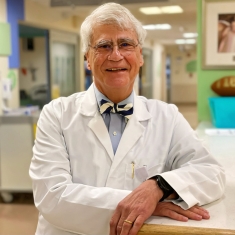
An avid reader of The Saturday Evening Post and Look magazine who had read with fascination about the first open heart surgery ever performed the year before, he consulted his family’s encyclopedia to find an explanation for his pain.
“I looked it up and I said, ‘My goodness, I have appendicitis.’”
A doctor came to see him and disagreed. “He looked at me like I was some kind of a wise guy, a Jersey City kid.”
But Mavroudis’s self-diagnosis turned out to be right. “About four or five days later I was out of the hospital, having had my appendix removed with the satisfaction of knowing I had something to do with it,” he says. “And then from then on, I said, ‘I can do this.’”
Not only did Mavroudis “do this,” he went on to become a renowned pediatric congenital heart surgeon, establishing one the world’s earliest neonatal cardiac transplant programs. He also has made many scientific and clinical contributions through research and voluminous publications, including the textbook Pediatric Cardiac Surgery, which is in its fifth edition.
‘It all started at Rutgers College’
Born in Greece, Mavroudis emigrated to America with his family at the beginning of the Greek civil war which followed World War II. He was 11 months old.
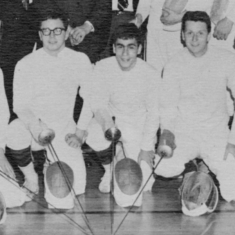
After graduating from Jersey City’s Dickinson High School in 1964, Mavroudis, a skilled fencer, enrolled at Rutgers on an athletic scholarship. He would go on to become captain of the university’s talented fencing team, which included Olympian Paul Pesthy.
Mavroudis had considered the idea that he should go to an Ivy League school such as Princeton, Columbia, or the University of Pennsylvania but decided on Rutgers. “I had a scholarship, first of all, and second of all, it was—as it is now—a very good academic school,” he says. “I didn't need to put my father into more debt for me to go to these other highfalutin schools when I was going to do just fine at Rutgers.”
Mavroudis enjoyed the status of being a scholar athlete. He also joined Phi Gamma Delta, which was known as the “Gentleman Jocks Fraternity,” and cultivated an active social life. However, those experiences and his premed studies are not what made the biggest impression on him in New Brunswick.
“What I really loved, and what I really excelled in, was art, literature, and music,” he writes in his memoir, Finding the Way, which was published in 2024.
He studied the Greek classics, listened to Beethoven and Mozart, and took Shakespeare courses that required memorizing and reciting long passages. Ultimately, he writes it “was Aristotle who resonated in my mind and taught me the principles of being a good person (in Greek, Kalos Anthropos). And that requires a lifelong commitment to virtue. And it all started at Rutgers College.”
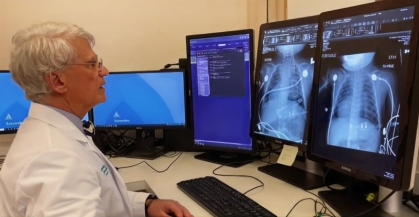
After finishing his undergraduate degree in biological sciences at Rutgers in 1968, Mavroudis compiled an extensive biography. He attended the University of Virginia Medical School, graduating in 1973, and spent the remainder of the 1970s working and training as a surgeon. Beginning in 1981, he went on to lead pediatric surgery programs and/or serve as a professor at several institutions, including the University of Louisville, Northwestern University, the Cleveland Clinic, AdventHealth for Children in Orlando, and Johns Hopkins University Medical School, where in 2020 he was named professor emeritus of surgery. He retired in 2024 as chief of pediatric cardiothoracic surgery in from Peyton Manning’s Children Hospital in Indianapolis. Throughout his career, he has been a prolific author, publishing more than 575 peer-reviewed articles and book chapters as well as influential textbooks.
Exercise also has been a key part of his life. He has completed 11 marathons, 85 Olympic distance triathlons, and 15 Ironman triathlons in the United States, Europe, and Africa—and he hasn’t given up yet. “I truly believe that at 77 years old, my triathlon days are not over,” Mavroudis writes in his memoir, which was published before his 78th birthday.
Death and Life
Although the vast majority of surgeries Mavroudis performed on children over half a century have been successful, not all have survived. It’s a difficult weight for him to bear, in part because he can relate to what the parents of the children are experiencing: in the 1980s, he and his wife, Martha, lost their third child, a daughter named Evelyn. She was born with severe internal complications and did not survive a surgery shortly after being born.
“We grieved, we buried our daughter, and we never forgot the pain and disappointment we experienced,” he writes.
Mavroudis said he carried the loss with him when children he operated on did not survive. “Every time a child died, the memory of our loss came back to me,” he writes. “I oftentimes retreated to an empty room and just cried.”
For every child who has died during Mavroudis’s surgeries, exponentially more survived and went on to live full lives. “I've operated on thousands of children, many of whom went on to be doctors and lawyers, and mothers and fathers,” he says, noting that two went onto become pediatric cardiologists.
Often Mavroudis is thrilled to see adults he once operated on when they were children. One time when he and his wife were having dinner in an Italian restaurant in Chicago, they noticed a five-year-old girl at a nearby table “beautifully adorned in a blue and white striped dress, patent leather shoes, and a bow in her hair.”
For dessert, he and his wife ordered “a large dish of profiteroles with gobs of vanilla ice cream, warm chocolate syrup, and crème fraiche on top,” he writes. “When it arrived at the table, the little girl’s eyes dilated.”
Mavroudis asked the mother if it was OK to invite the girl to join them, and she agreed. The little girl enjoyed the dessert with them.
“Then, her mother said, ‘Dr. Mavroudis, don’t you recognize your patient? You performed an arterial switch operation on her at six days of age. As you can see, she is doing very well.’
“These kinds of interactions were not rare, and they were always heartwarming,” he writes. “It is the culmination of seeing my life’s work in real time right in front of me.”
Mavroudis is one of five new inductees who will be formally enshrined in the Rutgers Hall of Distinguished Alumni in a ceremony starting at 6 p.m. Thursday, April 24, at the Palace at Somerset Park, 333 Davidson Avenue, Somerset, New Jersey. For more information, visit the Hall of Distinguished Alumni page.
Nominator’s Remarks
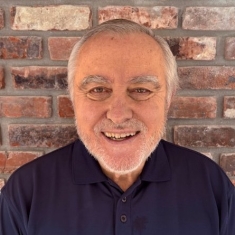
"It has been 60 years since Gus and I and other fraternity brothers would sit at the Phi Gamma Delta house late at night and have a typical college-age discussion of what was important to us at the time. Topics included sports, upcoming house parties, late night food from Greasy Tony’s, etc. Although these topics were also important to Gus, he also was very interested in the humanities, which was somewhat rare in a ‘Jock House.’ Upon graduation, I lost touch with Gus. I went into the Air Force and Gus went on to medical school. After recently reading his memoir and learning about what he has accomplished in medicine, his love of the humanities, his love of athletic competition, his love of good food and wine, and probably most important, his love of family, I believe Gus is a true Renaissance Man."
—Kenneth Schmidt RC’67

WE ARE YOU is an ongoing series of stories about the people who embody Rutgers University’s unwavering commitment to academic excellence, building community, and the common good.
Be Part of the Rutgers Story
Discover giving opportunities that support core Rutgers values.
Learn More